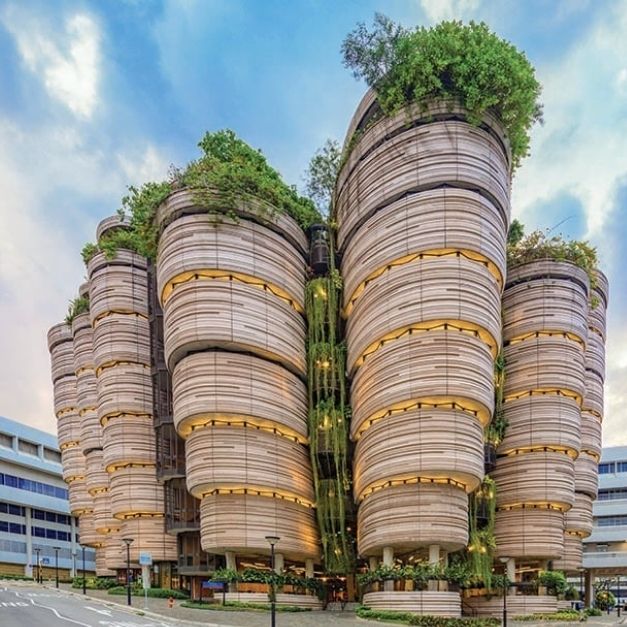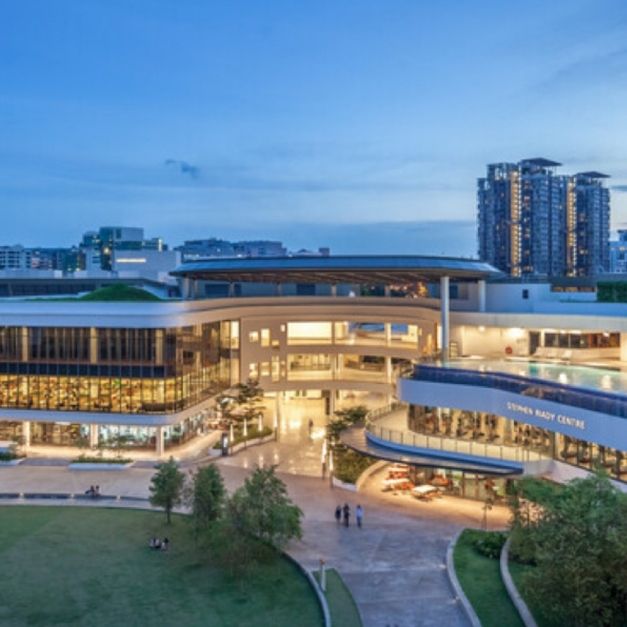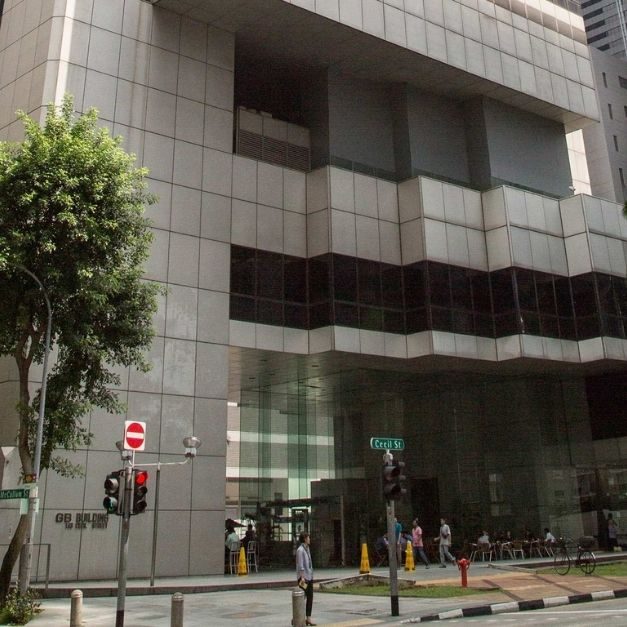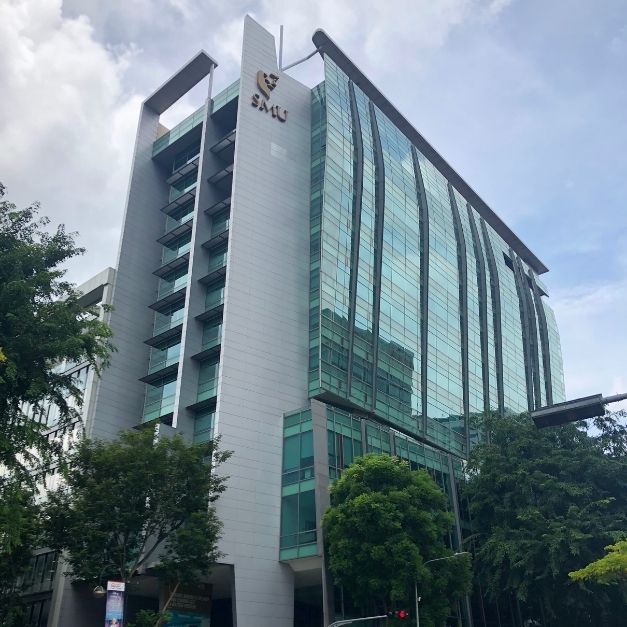
Study In Singapore
Singapore ranks 20th in the employer activity indicator in Asia
Singapore is a progressive nation that heavily promotes education, making it an attractive destination for international students. Plus, its strategic location in Asia makes it a gateway to numerous career opportunities in the region. So, if you are ready to discover more, let’s dive into why studying in Singapore could be your best decision yet!
Why study in Singapore?
- Singapore ranks 15th in the QS Best Student Cities Ranking
- The employment rate for graduates from Singapore’s autonomous universities was around 94% in recent years.
- Located in the heart of Southeast Asia, Singapore offers easy access to major Asian markets, enhancing your global career prospects.
- The country has amazingly low crime rates and clean, green cityscapes, ranking 3rd safest country globally.
Education System in Singapore
- Preschool- The Pre School in Singapore caters to children under the age of 7 and generally encompasses various types of programs. These include both half-day and full-day care options, as well as kindergarten-level educational programs.
- Primary Education- Every Singapore Citizen born after January 1, 1996, or are currently between 6- 15 years and residing in Singapore is required to enroll in a national primary school unless they receive an exemption.
- Secondary Education- Secondary education in Singapore is largely supported by the government and is mostly public. After primary education, students have to clear the Primary School Leaving Examination (PSLE) to get admissions to different streams in secondary education- Express(E)/ G3, Normal (Technical) (N(T)/ G1
- Post Secondary Education- In general terms, post secondary education comprises the studies you wish to take up after your secondary education or say class 12th. It consists of all undergraduate and postgraduate studies. We have discussed them in detail below.
Types of Institutions in Singapore
| Types | Characteristics | Universities |
|---|---|---|
| Junior Colleges, Millennia Institute | Pre-university institutions offering a two-year program that prepares students for university; academic focus. | Anderson Junior College, Raffles Junior College, Millennia Institute |
| Singapore Sports School, School of the Arts | Specialized independent schools that provide tailored education for students with exceptional talent and strong interests in sports and the arts. | Singapore Sports School, School of the Arts (SOTA) |
| Polytechnics | Polytechnics offer practical, hands-on learning in a dynamic environment, with programs available at diploma and post-diploma levels, including Work-Study Post-Diplomas. | Nanyang Polytechnic, Ngee Ann Polytechnic, Republic Polytechnic, Singapore Polytechnic, Temasek Polytechnic |
| Institute of Technical Education | Provides career and technical education through Nitec and Higher Nitec courses, full-time Technical Diplomas, and Work-Study Diplomas in collaboration with employers. | ITE College Central, ITE College East |
| LASALLE, NAFA, University of the Arts | offer a range of publicly funded and self-funded degree and diploma programmes in the visual and performing arts. | LASALLE College of the Arts, Nanyang Academy of Fine Arts, University of Arts Singapore |
| Government – affiliated Educational Institutes | Industry-specific diploma, degree and graduate certificate programmes are offered. | BCA Academy, Singapore Aviation Academy, IP Academy, SUTD |
| Autonomous Universities | prepare students for the new jobs and challenges of the future economy. | Singapore Management University (SMU), Singapore University of Social Sciences (SUSS) |
If you are an international student staying in Singapore on any of the following- Dependent’s Pass, Long Term Visit Pass, Short Term Visit Pass or come under the Visa Exemption Order, you can be exempted from applying for student visa. If not, you can apply for a student pass/ student visa on the Immigration and Checkpoints Authority of Singapore Government for the duration of your course
Fund Requirements
To study in Singapore as an international student, you need to demonstrate sufficient financial resources to cover tuition, living and other expenses. Generally, it is advised to showcase a bank statement consisting of at least one year of your tuition plus living expenses in Singapore. The visa officers will verify this amount by aligning your tuition fees and other average expenses you may have in Singapore.
Singapore Visa Application Process
The Visa application process is regulated through the Student’s Pass Online Application & Registration (SOLAR) system by the ICA, Government of Singapore. The Student Visa cost could vary based on the type of institution and country.
Cost of Studying in Singapore
The cost of studying in Singapore varies widely, depending on the course/ program, institution, your accommodation type and location, lifestyle and other needs. Scholarships and grants can help reduce these costs but here is a general estimate of costs for you:
Undergraduate tuition fees: S$15,000- S$75,000
Postgraduate tuition fees: S$18,000- S$120,000
Living Expenses
Even after being ranked highly among the best cities for international students and offering low tuition fees, living in Singapore is slightly on the pricier side compared to other English speaking countries. You can easily spend up to SGD 1,200 to SGD 2,000 besides fees, on your lifestyle including rent. However, you should have enough money to sustain your life in Singapore for at least one year including the fees to get your visa approved by the embassy.
Admission Requirements to Study in Singapore
- For Undergraduate Programs- A- level student (at least 3 pass in A level subjects) or IB (at least 30- 36 points) or High School Diploma (with GPA 3.0 or above) or equivalent qualification from an accredited institution.
- For Postgraduate Programs- A GPA of 3.0 or above in Bachelor’s from an accredited institution in a relevant field.
- English Language Proficiency- Proof of proficiency through any of the recognized English proficiency exams if English was not your first language in school. Here are the acceptable scores of the three most common exams:
-IELTS- 6.5 or above
-TOEFL- 70 or above
-PTE- 45- 50 or above - Acceptable Standardized Tests- SAT/ GRE/ GMAT or any test depending on the field of study and program level.
Application Process
- Explore universities and programs that align with your academic and career goals.
- Review admission requirements for your chosen program, including qualifications, language tests, and standardized test scores.
- Gather necessary documents for your application, like transcripts, test results, SOP, LOR, passport copy, etc.
- Complete the online application form via the university’s portal, ensuring accuracy and submission of all required documents.
- Pay the non-refundable application fee as detailed by the university.
- Prepare for an interview if required, which may be in person or online.
- Await the admission decision, which varies by university and program.
- If accepted, follow the instructions in the offer letter to confirm your acceptance.
- Apply for a student visa (Student Pass) to study in Singapore, submitting your offer letter and proof of financial stability.
International students in Singapore are allowed to work for up to 16 hours in a week during the semester along with the classes. However, they can work up to 40 hours per week during the holidays/ semester breaks. Here’s a complete guide for you to understand the part- time work opportunities and related tips while studying in Singapore
Top JOb Opportunities in Singapore
| Job Roles | Average Annual Salary |
| Chief Executive Officer | SGD 200,000 – 350,000 |
| Investment Banker | SGD 120,000 – 250,000 |
| Data Scientist | SGD 70,000 – 90,000 |
| Software Engineer | SGD 60,000 – 80,000 |
| Healthcare Professional | SGD 60,000 – 80,000 |
Post Study Work Opportunities
Singapore offers two kinds of visas to stay and look for job opportunities in the country after you finish your post secondary education. The ‘Short Term Visit Pass’ allows you a duration of 90 days to stay in the country after studies. However you cannot accept employment on this pass. For that, you need to have a ‘Long Term Social Visit Pass’ which offers you a year to stay and seek employment in Singapore.
Student life in Singapore
Campus life in Singapore is dynamic and enriching, characterized by a strong emphasis on academic excellence and a vibrant multicultural atmosphere. The universities offer state-of-the-art facilities and cutting-edge research opportunities. With the campuses being a hub of cultural diversity, students from all over the world contribute to a rich tapestry of cultural exchanges and perspectives. Safety is a significant advantage and the quality of life is exceptional, with efficient public transportation, numerous recreational options, and excellent student support services, including academic counseling and career guidance. This blend of rigorous academics, cultural vibrancy, and high living standards makes campus life in Singapore both fulfilling and stimulating for students panting in cultural events, and exploring new environments contribute to a rewarding and enriching experience.
Top Courses in Singapore
Top Universities in Singapore

Nanyang Technological University

National University of Singapore

LSBF Singapore

Singapore Management University
Upcoming Intakes in sINGAPORE
| University | Intake | Deadline |
|---|---|---|
| Nanyang Technological University | Sep 2025 | July 4, 2025 |
| National University of Singapore | Sep 2025 | July 1, 2025 |
| Singapore Management University | Sep 2025 | July 18, 2025 |
| SIM Global Education | Aug 2025 | May 31, 2025 |
| INSEAD Asia Campus | July 2025 | May 4, 2025 |
| Singapore University of Technology & Design | July 2025 | May 24, 2025 |
Scholarships in sINGAPORE
Commonwealth Scholarships
- Amount: Varying
- Type: Merit-Based
- Level of Study: Postgraduate/PhD
Asean Undergraduate Scholarships
- Amount: Fully Funded
- Type: Merit-Based
- Level of Study: Freshmen Undergrad
International Pre- Graduate Award
- Amount: SGD 2,000 per month
- Type: Merit-Based
- Level of Study: Undergrad/Postgrad
Dr. Goh Keng Swee Scholarships
- Amount: Fully Funded
- Type: Merit-Based
- Level of Study: Undergraduate
ADB- Japan Scholarship Program
- Amount: Around SGD 7,500
- Type: Merit-Based
- Level of Study: Postgraduate
International Graduate Award
- Amount: Fully funded with stipend
- Type: Merit-Based
- Level of Study: Postgraduate
